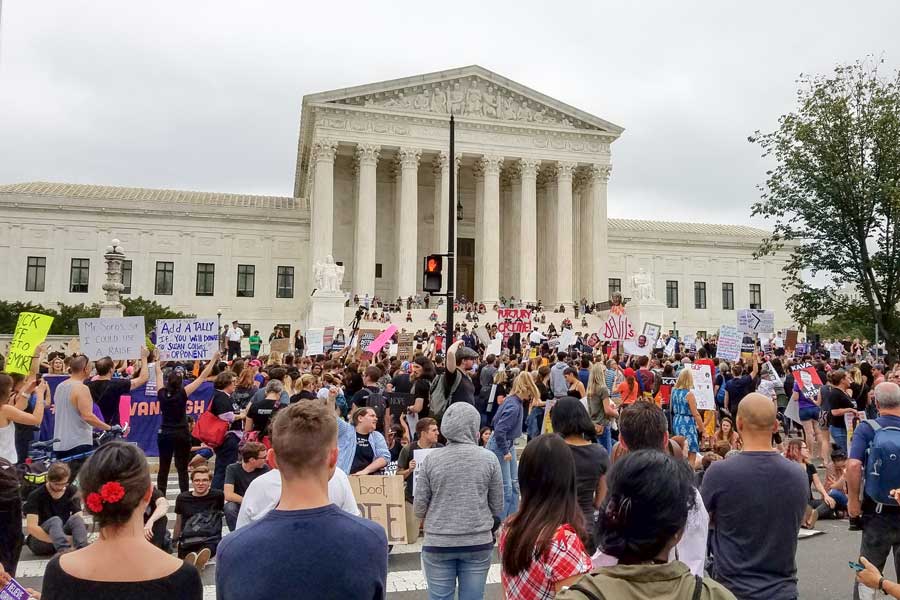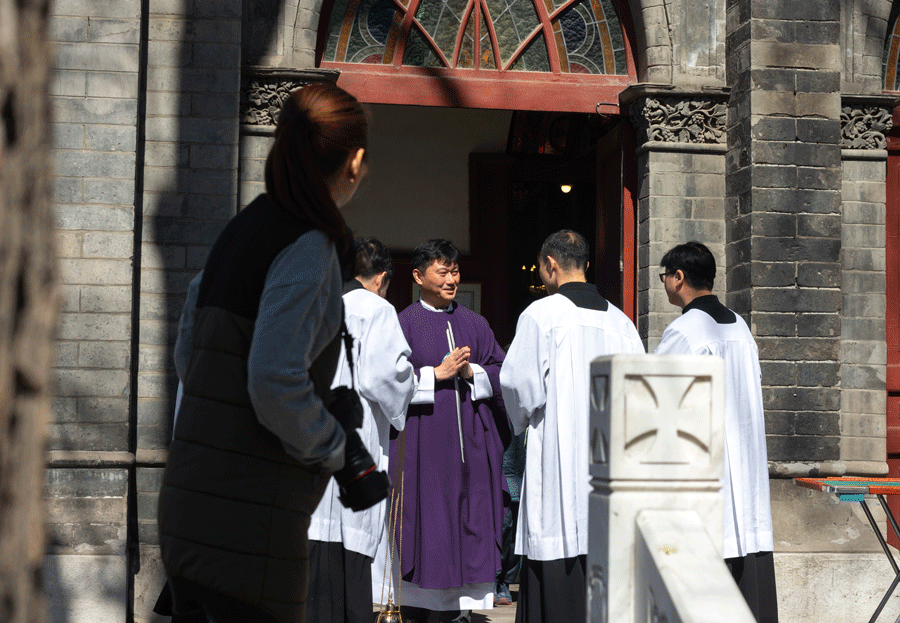Global Prayer Alerts
WASHINGTON —
The U.S. Supreme Court on Friday overruled a constitutional right to abortion in America, leaving it to states to decide whether to permit the procedure that has been legal nationwide for five decades.
“The Constitution makes no reference to abortion, and no such right is implicitly protected by any constitutional provision,” Associate Justice Samuel Alito wrote in his majority opinion, joined by four other conservative justices. “It is time to heed the Constitution and return the issue of abortion to the people’s elected representatives.”
The ruling came less than two months after an early draft of Alito’s decision was leaked to a news site, setting off nationwide protests by abortion-rights activists.
While the high court's overturning of its 1973 ruling in the case known as Roe v. Wade and a separate case called Planned Parenthood v. Casey does not impose a ban on abortion, its legal impact will ripple through the country almost immediately.
The Guttmacher Institute, an abortion-rights research group, estimates that 26 states, mostly in the South and Midwest, will ban abortion in the wake of Roe v. Wade's repeal. That could force millions of women seeking abortions to travel to states where abortion rights are protected.
“[O]ne result of today’s decision is certain: the curtailment of women’s rights, and of their status as free and equal citizens,” wrote Associate Justices Stephen Breyer, Sonia Sotomayor and Elena Kagan, the court’s liberal members, in a spirited dissent.
At the White House, President Joe Biden condemned the ruling but implored protesters to remain peaceful.
“Let’s be very clear: The health and life of women in this nation are now at risk,” Biden said. “It’s a sad day for the country.”
In a statement, U.S. Attorney General Merrick Garland said the Justice Department “strongly disagrees with the court’s decision” and “will work tirelessly to protect and advance reproductive freedom.”
The Supreme Court's ruling came in a closely watched case involving a Mississippi law that bans nearly all abortions after the 15th week of pregnancy, several weeks before the cutoff stage established under Roe v. Wade.
Jackson Women's Health Organization, the only abortion clinic in Mississippi, challenged the 2018 law in federal court, arguing that it would violate nearly 50 years of Supreme Court precedent.
After two lower courts sided with the clinic, the state of Mississippi, backed by 25 other Republican-controlled states, went to the U.S. Supreme Court, asking the justices to overturn both Roe and Casey. Their petition claimed that "nothing" in the Constitution "supports a right to abortion."
Six of the high court justices, all appointed by Republican presidents, agreed. Chief Justice John Roberts concurred in upholding the Mississippi law but indicated he would not have gone further in ending the constitutional right to abortion.
Few issues in America are as divisive as abortion. For the past 50 years, American conservatives, driven by a desire to protect unborn life, have campaigned against the Roe v. Wade ruling. But they lacked the votes on the high court to overturn it.
That changed after Donald Trump won the 2016 presidential election and put three abortion-rights opponents on the high court. That gave conservatives a 6-3 majority on the powerful court, raising the likelihood that abortion rights would be overturned.
Trump reacted with jubilation to Friday’s ruling, saying in a statement, “Today’s decision, which is the biggest WIN for LIFE in a generation, along with other decisions that have been announced recently, were only made possible because I delivered everything as promised, including nominating and getting three highly respected and strong Constitutionalists confirmed to the United States Supreme Court."
Generally, the Supreme Court follows principles established in its prior rulings, a doctrine known as stare decisis. The dissenting justices wrote that the ruling violated this long-standing legal precept.
But Alito said that there are circumstances where a precedent can be and has been overturned. In a landmark ruling in 1954, for example, the Supreme Court invalidated an 1896 decision that had legalized racial segregation in the United States, Alito noted.
Alito wrote that the court's ruling was limited to abortion and would not affect other rights. But liberal critics of the decision worry the decision will open the door to overturn other rights recognized by the Supreme Court.
"If you strike down a law based on a fundamental disagreement with the legal reasoning that underpins it, the same exact arguments will allow the other decisions to be overturned," said Caroline Fredrickson, a law professor at Georgetown University and a senior fellow at the left-leaning Brennan Center for Justice.
Although Friday’s ruling did not come as a surprise after the draft opinion had been leaked, it set off a tidal wave of reaction in Washington and across America.
“This is a great day for preborn children and their mothers,” Carol Tobias, president of National Right to Life, a prominent group opposing abortion rights, said in a statement. “The Court has correctly decided that a right to abortion is not in the [C]onstitution, thereby allowing the people, through their elected representatives, to have a voice in this very important decision.”
Senate Minority Leader Mitch McConnell, a Kentucky Republican, hailed the ruling as “courageous and correct” and “an historic victory for the Constitution and for the most vulnerable in our society.”
“Today is one of the darkest days our country has ever seen,” Senate Majority Leader Chuck Schumer, a New York Democrat, said in a statement. “Millions upon millions of American women are having their rights taken from them by five unelected justices.”










